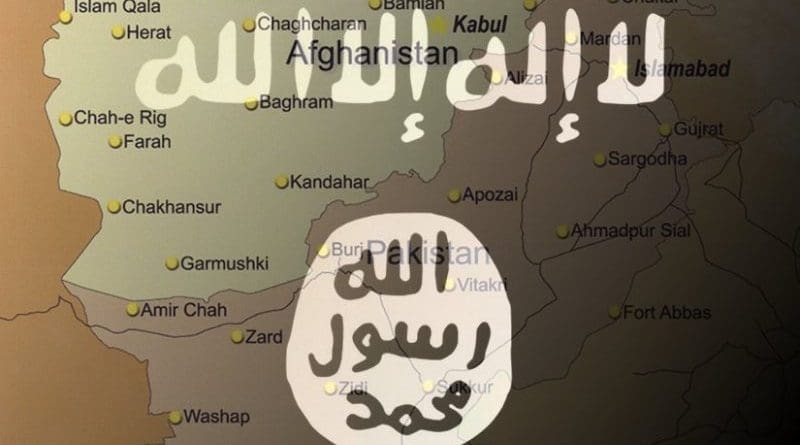ISIS At Play From Afghanistan: Bajaur Suicide Bombing And Surging Threats Of Terrorism – OpEd
The reverberations of the suicide bombing that shook a political rally in the Bajaur district of northwest Pakistan last week continue to send shockwaves through the nation, instilling widespread concern about security preparations leading up to the impending national election.
The distressing attack, strategically aimed at a gathering hosted by the conservative Jamiat Ulema Islam-Fazl (JUI-F) party, has left an indelible mark with a devastating death toll of 45 individuals. The responsibility for this heinous act has been claimed by the Islamic State, underlining the escalating and formidable threat that this terrorist organization poses within the region. The ramifications of this tragic incident extend far beyond immediate casualties, compelling Pakistan to confront pressing challenges at the crossroads of security and democracy.
The precise location of the suicide bombing, occurring near the border shared with Afghanistan, accentuates the regional dimensions of this tragedy. The JUI-F, known for its alignment with conservative Islamic ideologies and simultaneous condemnation of militant entities seeking governmental overthrow, found itself in the crosshairs of this violent assault. This event assumes even greater significance as Pakistan braces itself for the scheduled national election in November. The Islamic State’s claim of responsibility for the attack sheds light on its uncompromising and militant stance against democratic processes, portraying democracy as incompatible with their interpretation of true Islam. The death toll, which has tragically risen to 45, bears witness to the profound loss and suffering inflicted upon the affected families and communities. Prime Minister Shehbaz Sharif’s unequivocal denouncement of the bombing as an attack on the democratic foundation only underscores the magnitude of the existing tensions that encircle the impending election.
As Pakistan grapples with the aftershocks of this tragic event, deeply rooted security concerns have surged to the forefront. The imminent national election inherently prompts a surge in political rallies and campaign activities, thereby creating a vulnerable environment susceptible to exploitation by militant factions. The JUI-F party, recognized not only for its steadfast opposition to Pakistani Islamist militants but also its history of enduring threats due to its stance against violent extremism, finds itself facing a precarious situation. The recent bombing starkly accentuates the grave risks that political parties and their supporters may encounter during the intricate dance of election campaigns.
In tandem with the exacerbation of security challenges, the specter of potential implications on the election process looms ominously. Amid pre-existing rivalries among major political entities and persistent accusations of military interference in civilian political affairs, the attack’s ripple effects could potentially cast an even darker shadow on the feasibility of a seamless electoral process. The persistently occurring targeted attacks have inevitably triggered discussions and debates surrounding the potential postponement of the election, further complicating an already intricate and delicate political landscape. The resurgence of extremist groups in Pakistan is an undeniable reality that has unfolded in the aftermath of a breakdown in the ceasefire between the Pakistani Taliban (TTP) and the government. While the TTP and its splinter groups have predominantly spearheaded recent attacks, the calculated involvement of the Islamic State and the emergence of the Tehreek-e-Jihad Pakistan have introduced new dimensions of complexity for Pakistan’s security apparatus.
Although the Islamic State’s footprint within Pakistan may be relatively limited compared to the TTP, its capacity to orchestrate attacks of such magnitude raises grave concerns about its potential to escalate violence in the region. The Tehreek-e-Jihad Pakistan, a relatively nascent and lesser-known entity, has also contributed to the escalating wave of attacks, further compounding the security challenges faced by the nation. The JUI-F party, led by Maulana Fazl-ur-Rehman, occupies a unique position within this multifaceted landscape. Having weathered previous attacks due to its principled opposition to Pakistani Islamist militants, the party maintains a steadfast belief that the armed campaign pursued by these groups does not align with the core principles of Islam. However, the party’s simultaneous support for the Taliban movement in neighboring Afghanistan adds layers of complexity to its stance on extremist groups, reflecting the intricate balancing act that characterizes its approach.
In conclusion, the recent suicide bombing targeting a JUI-F party rally in Bajaur, Pakistan, and subsequently claimed by the Islamic State, has triggered a cascade of apprehensions concerning the nation’s security and democratic trajectory. The impending national election casts a stark spotlight on the mounting security challenges, while political factions confront the disconcerting specter of targeted attacks by determined extremist elements. The imperative for resolute governmental intervention to safeguard citizens, politicians, and the integrity of the election process stands as a bulwark against the erosion of democratic ideals and the preservation of regional stability.

